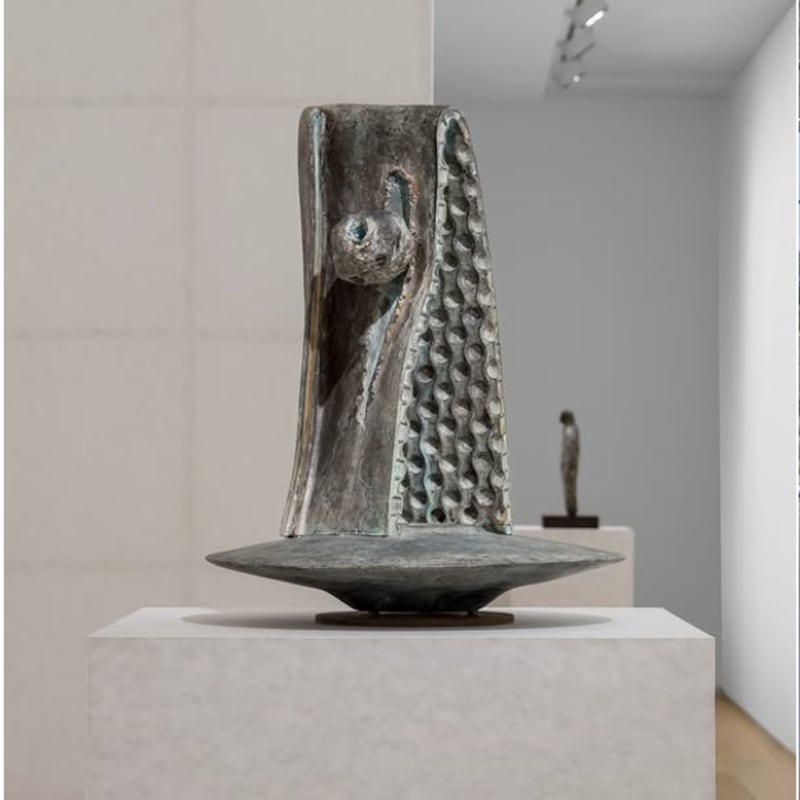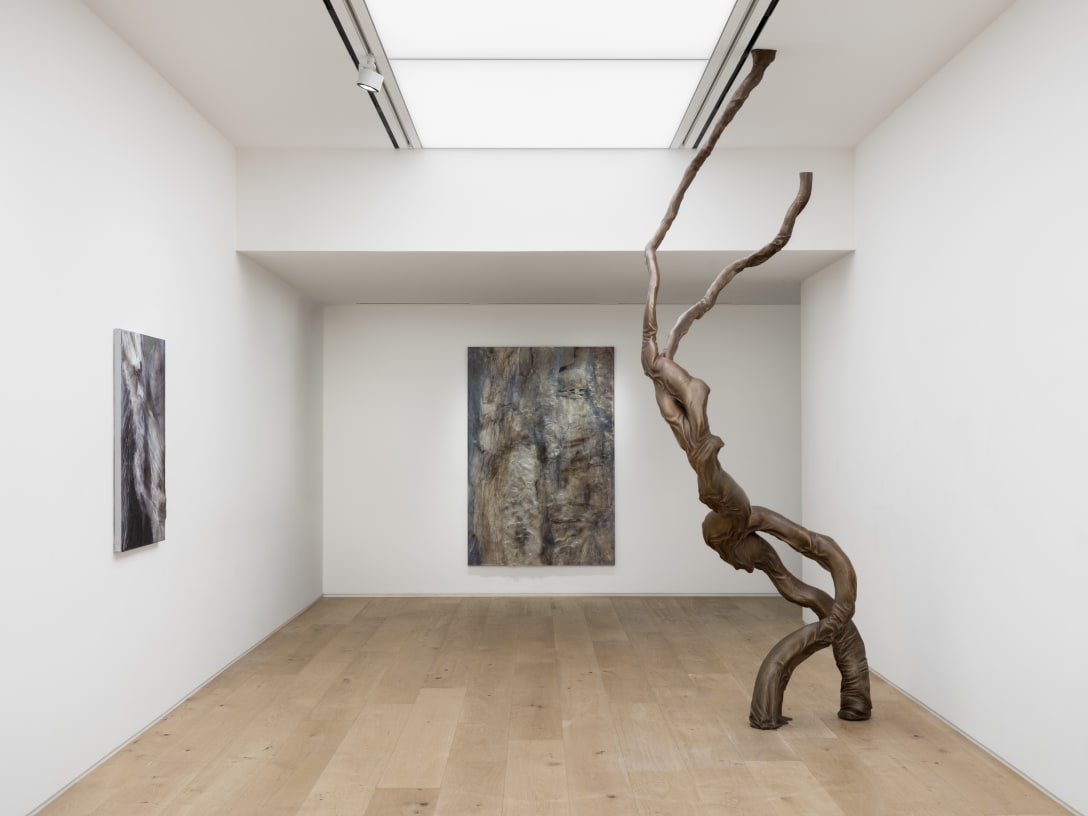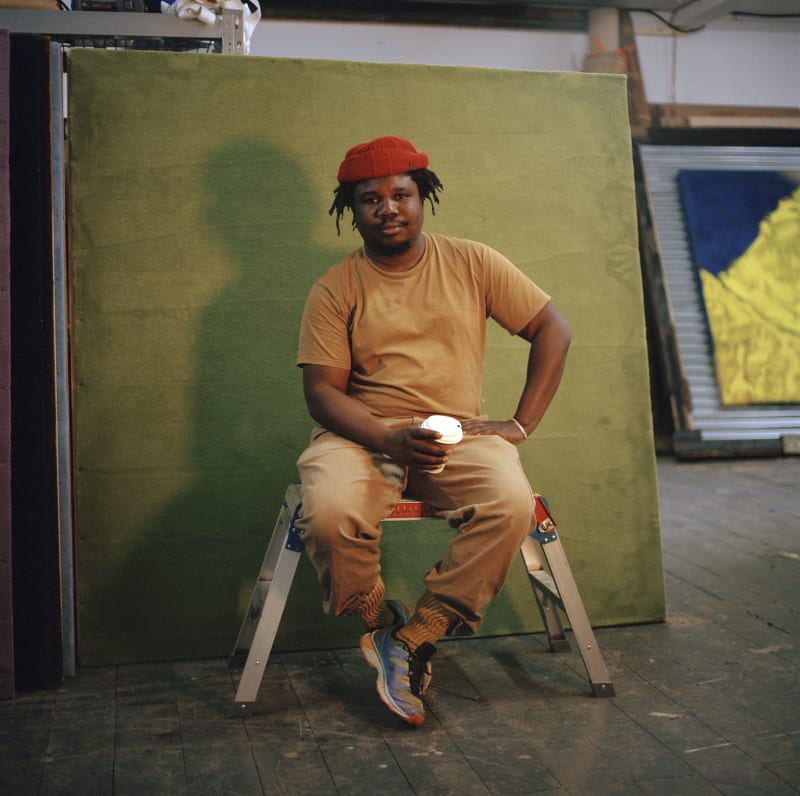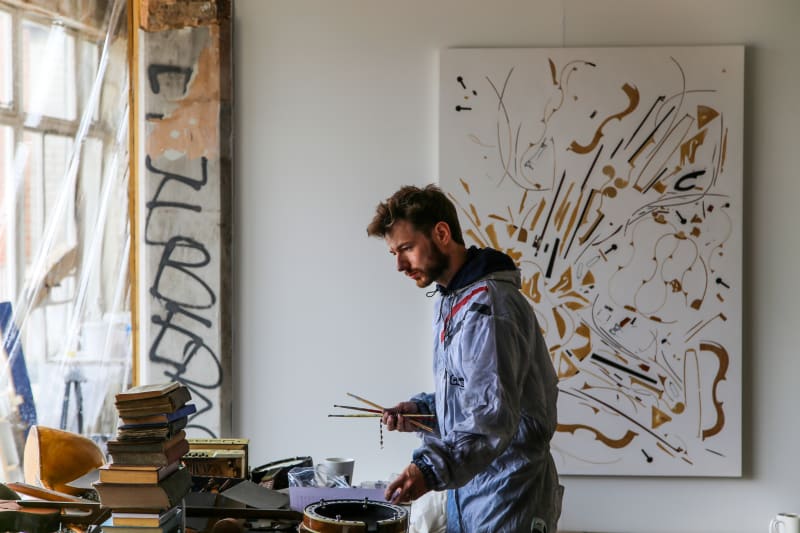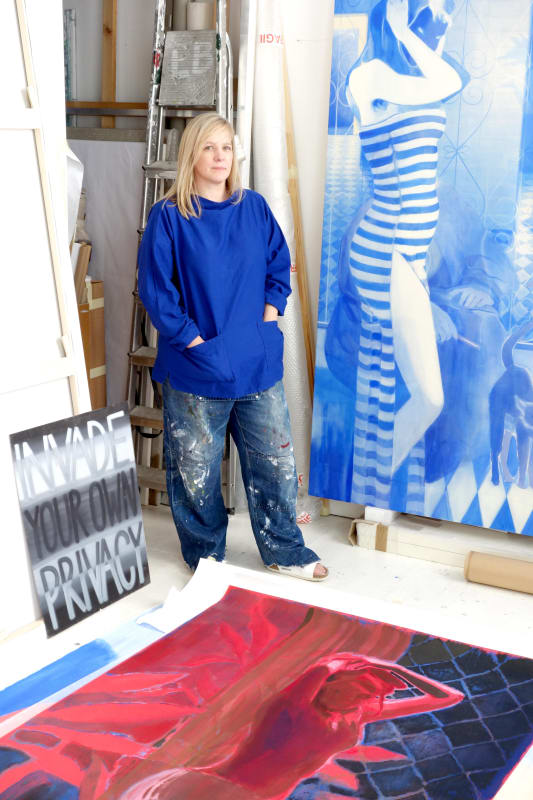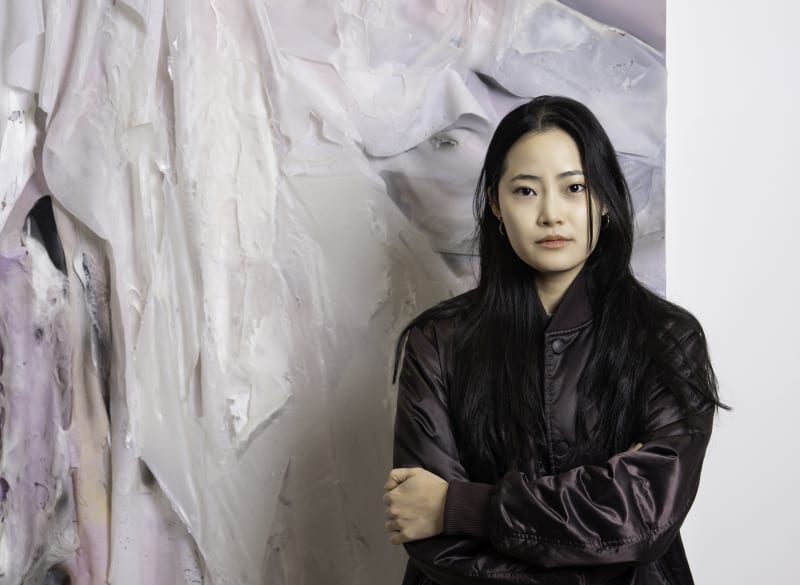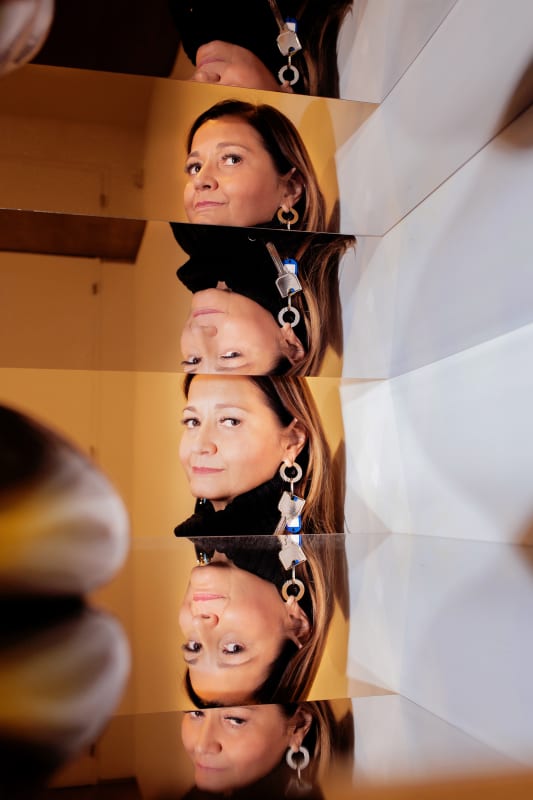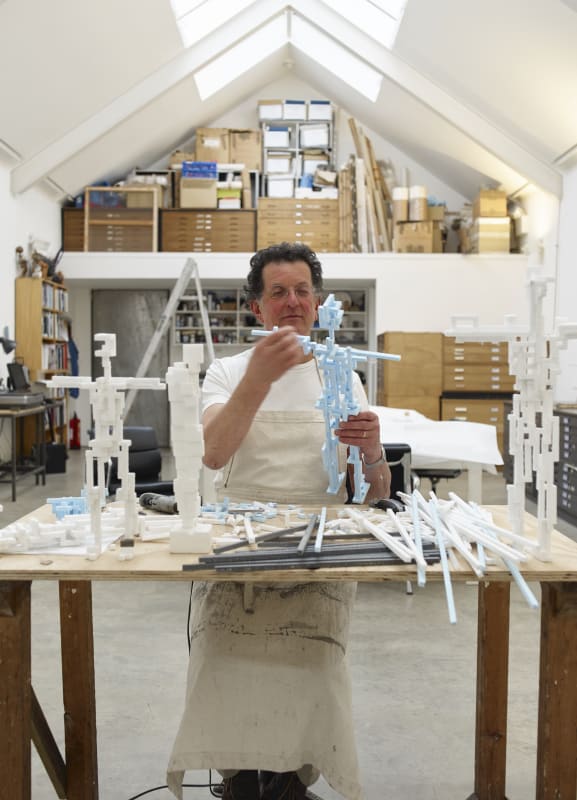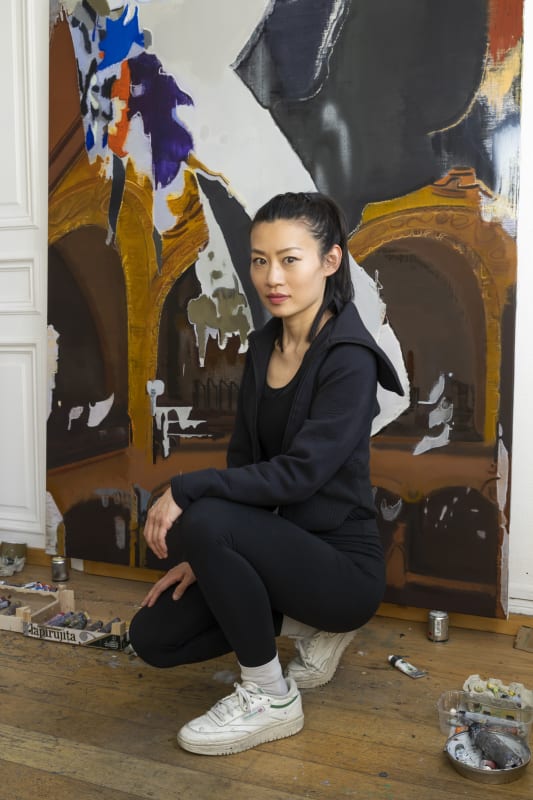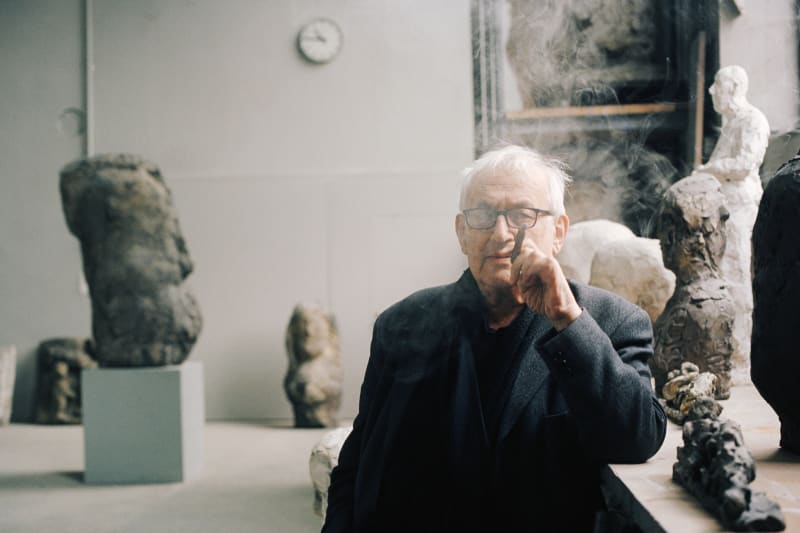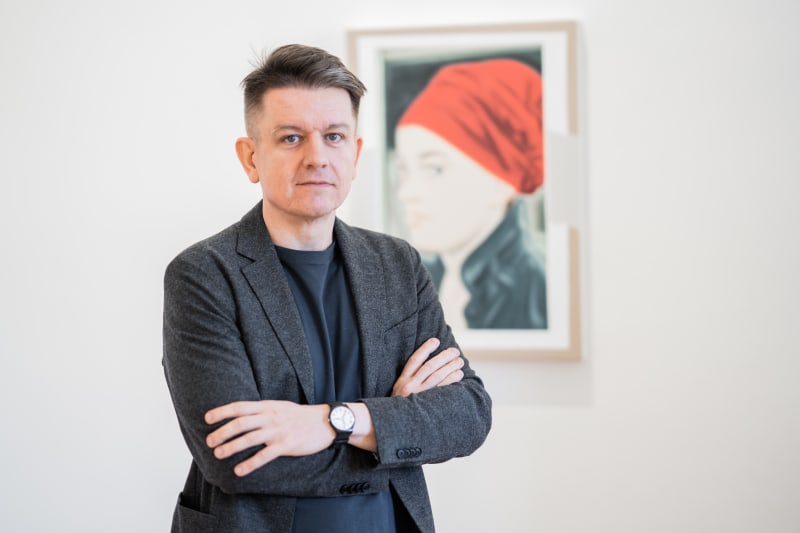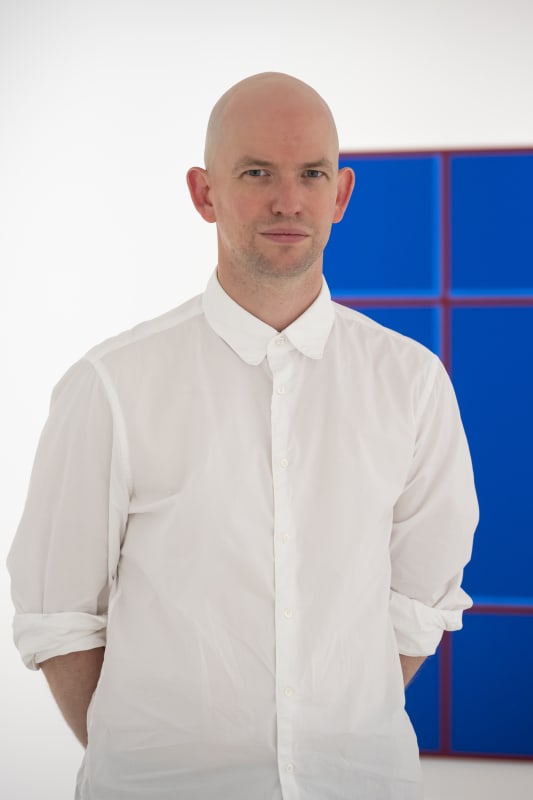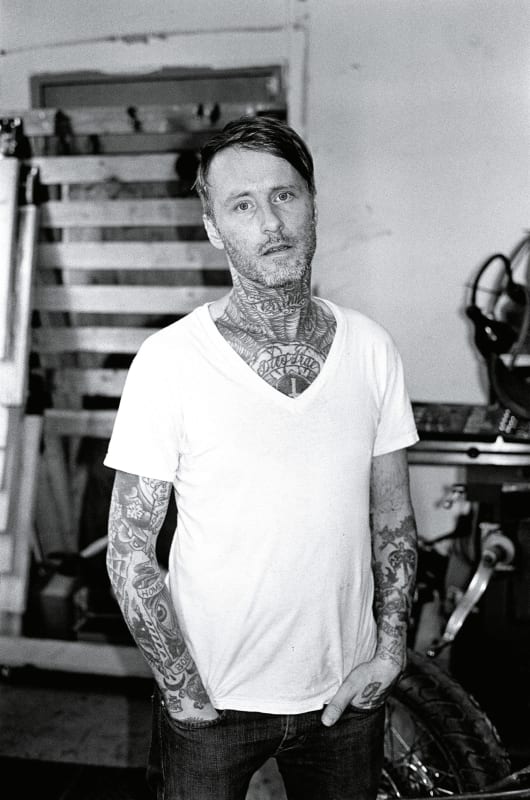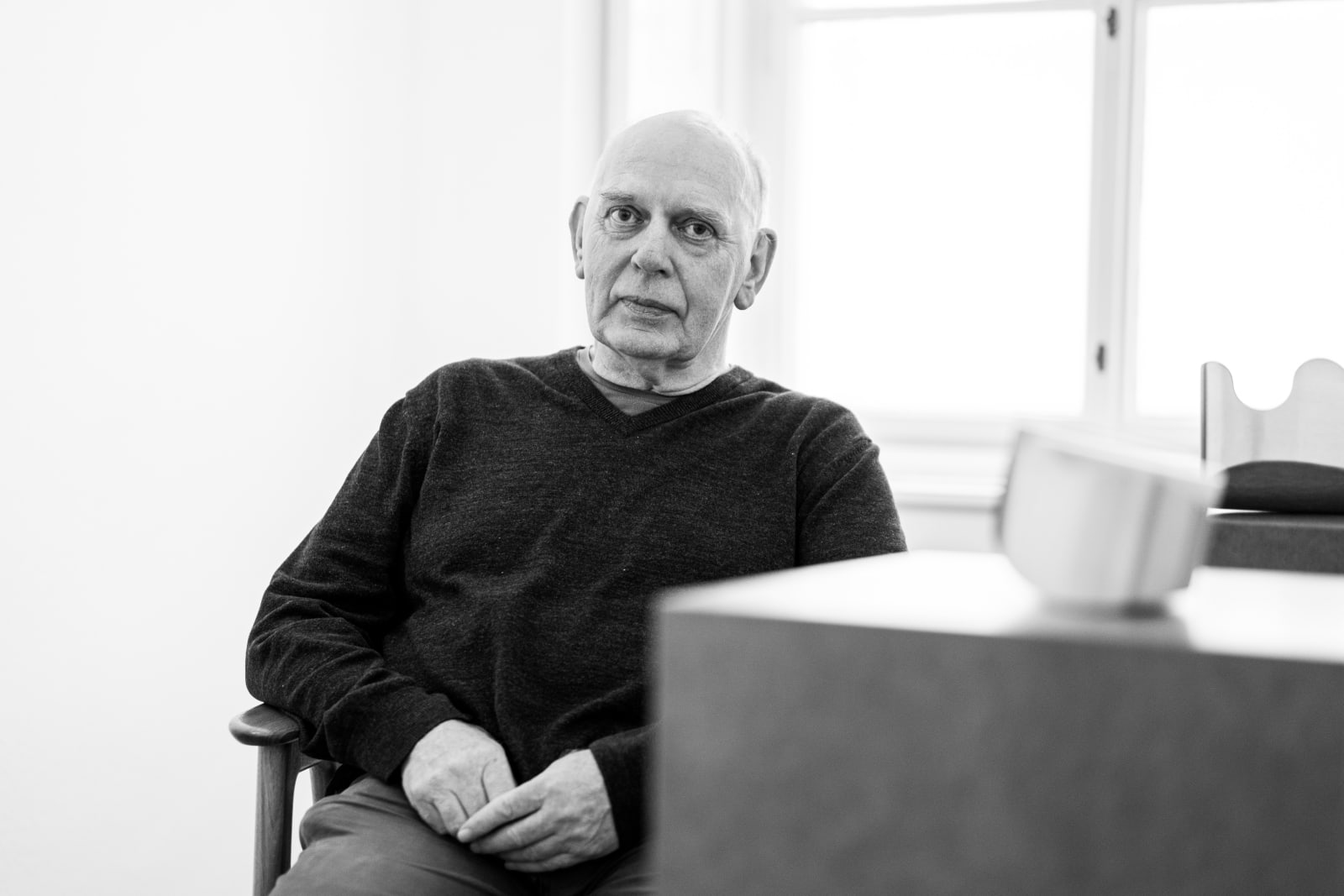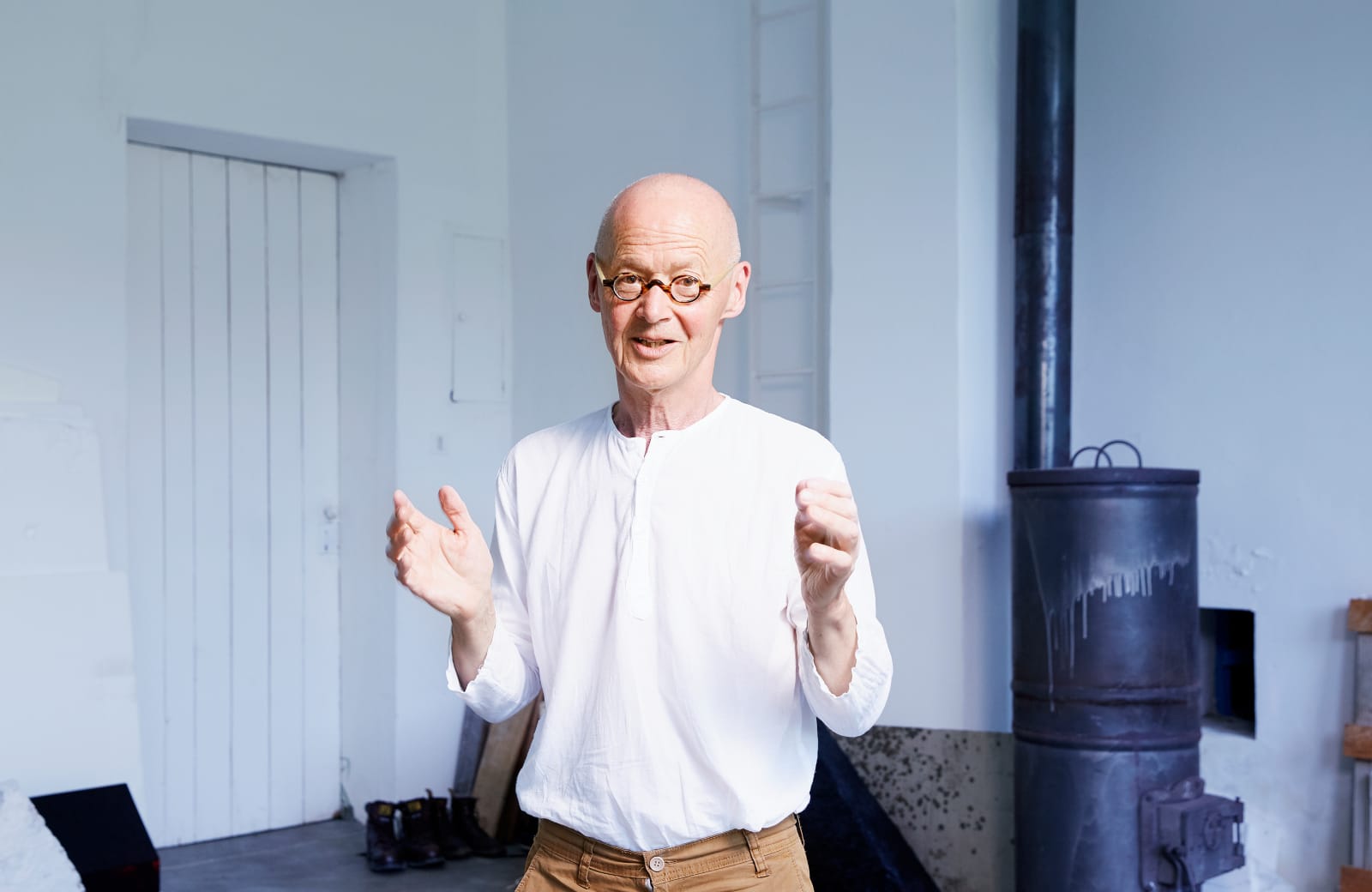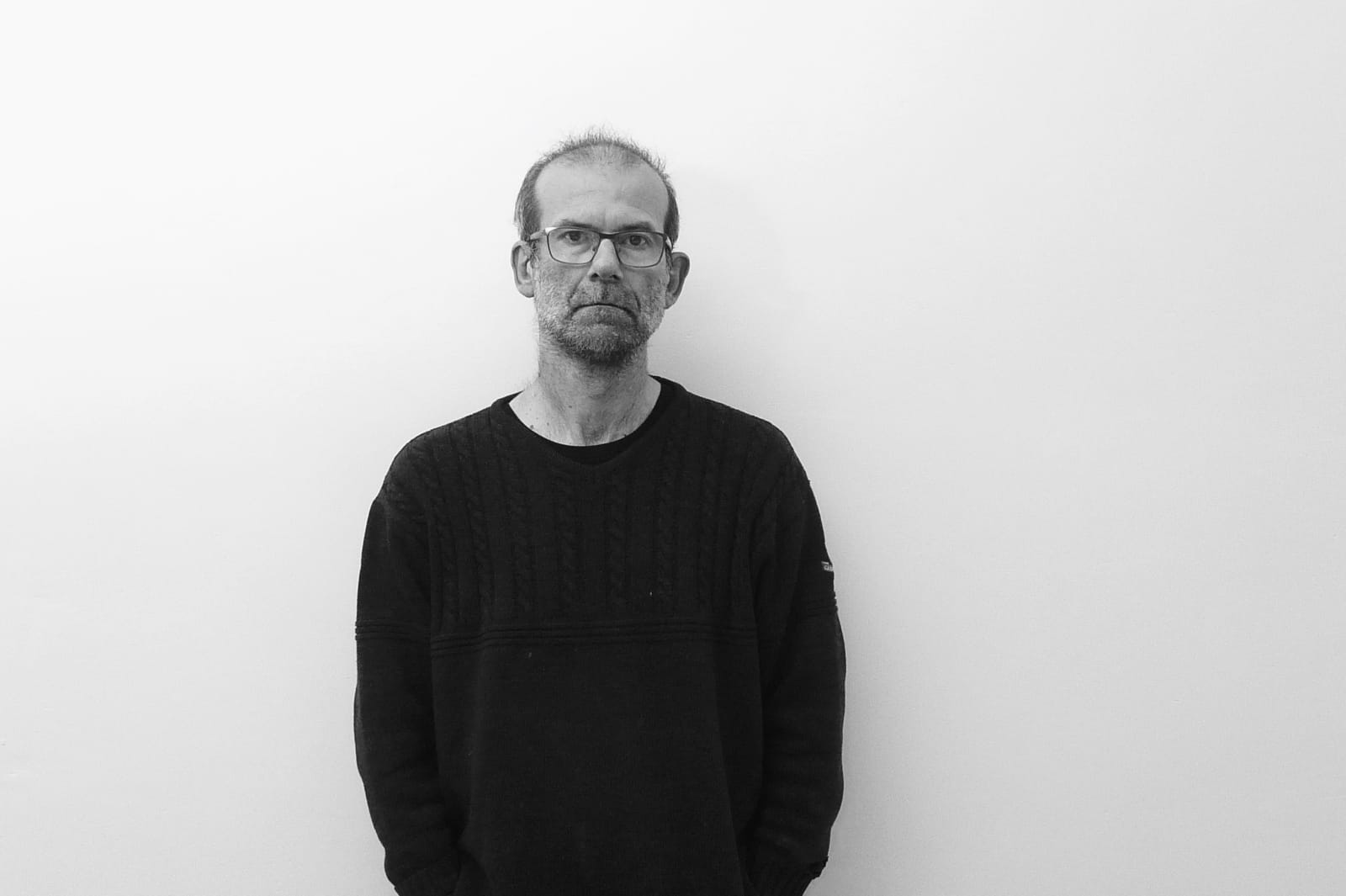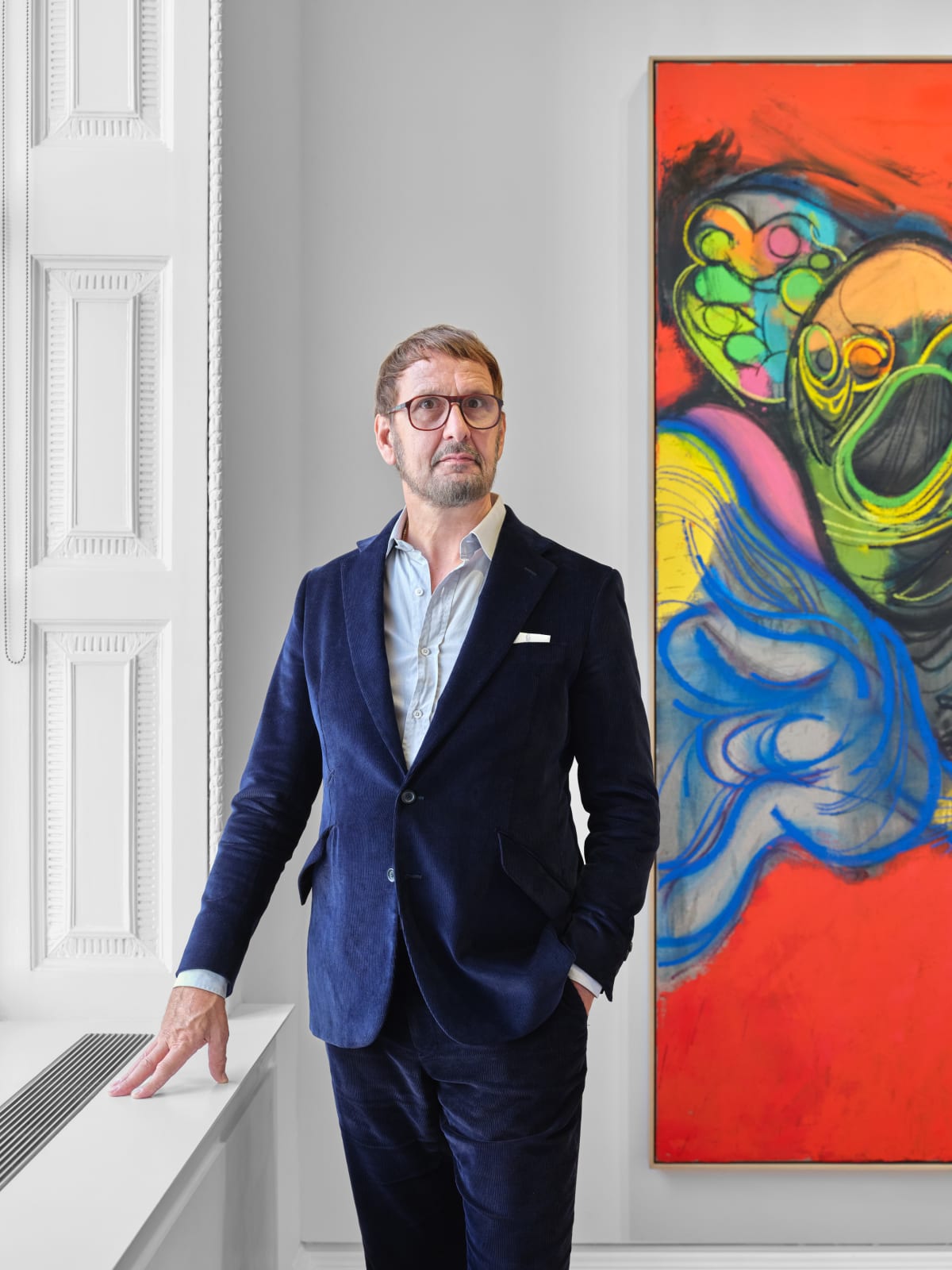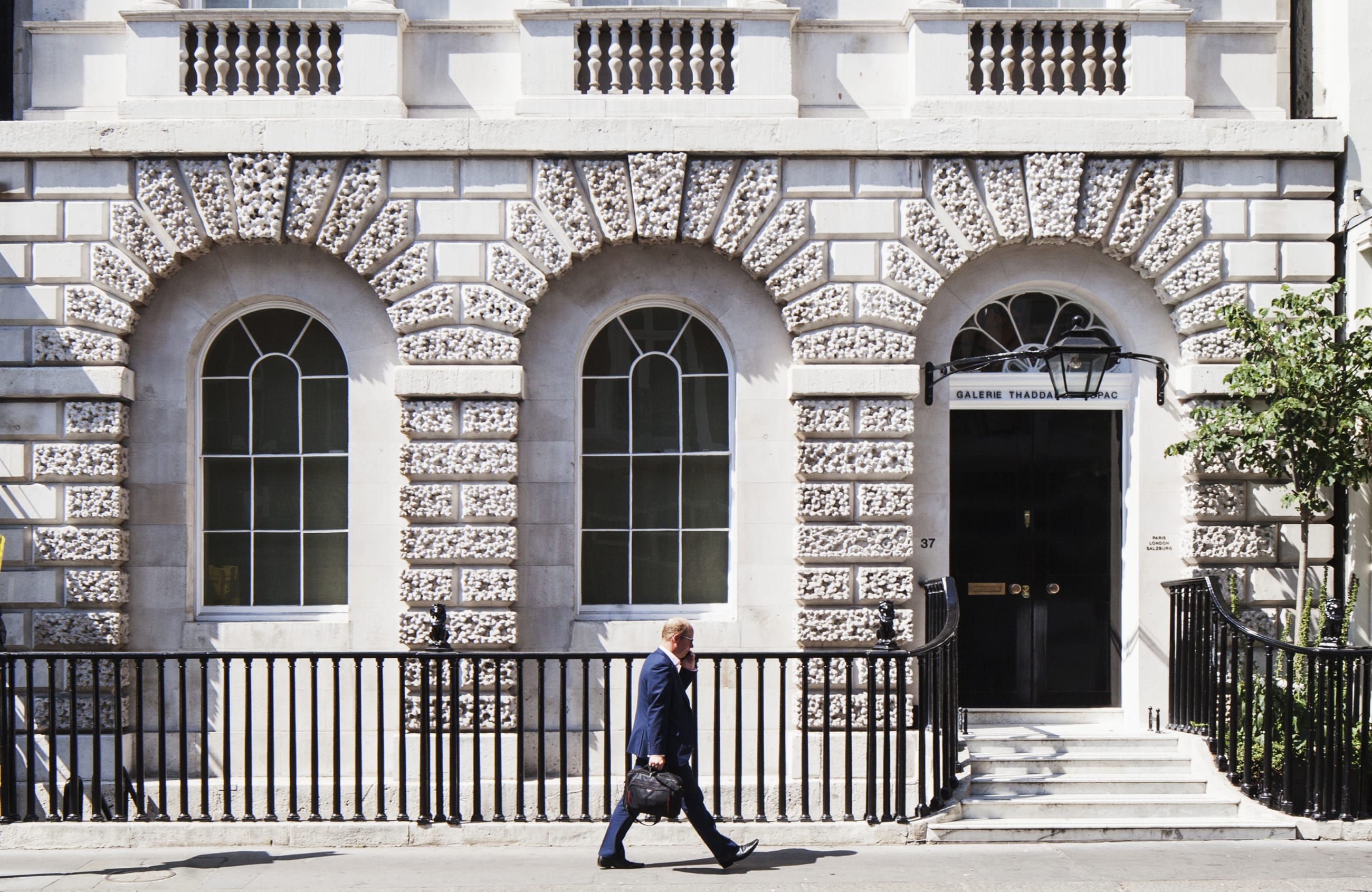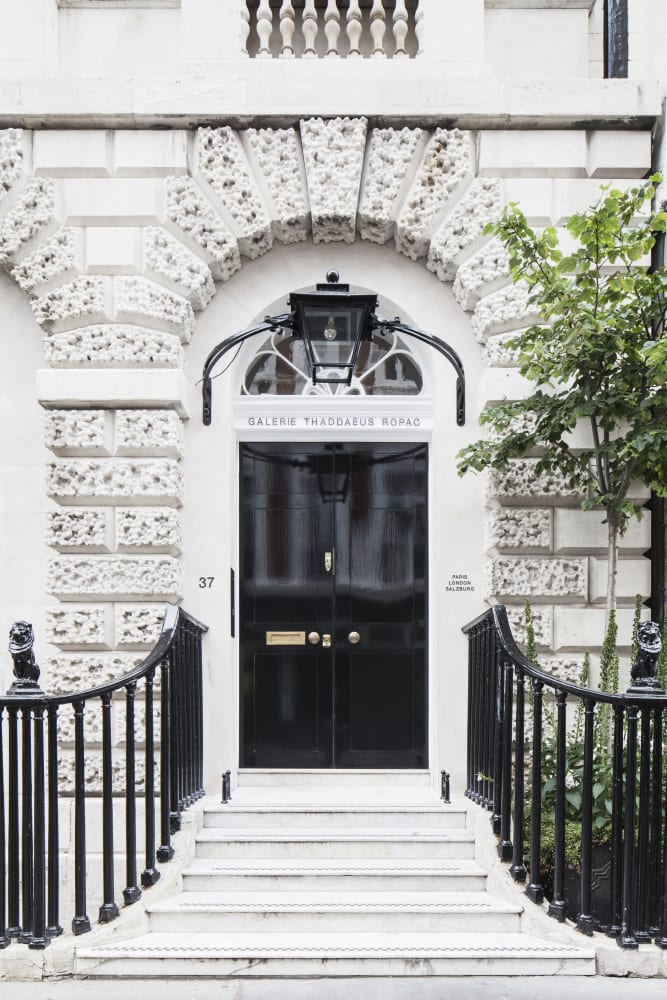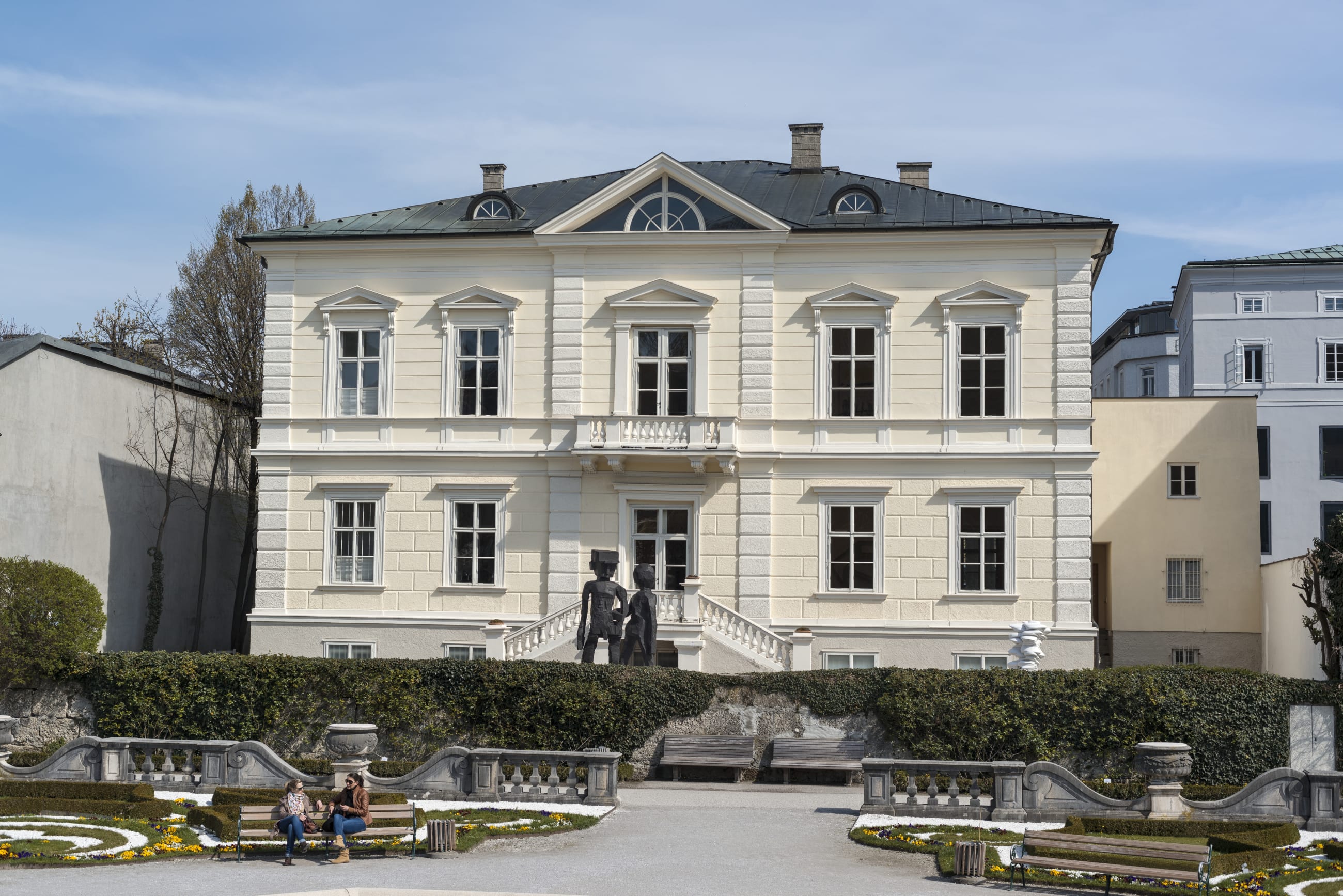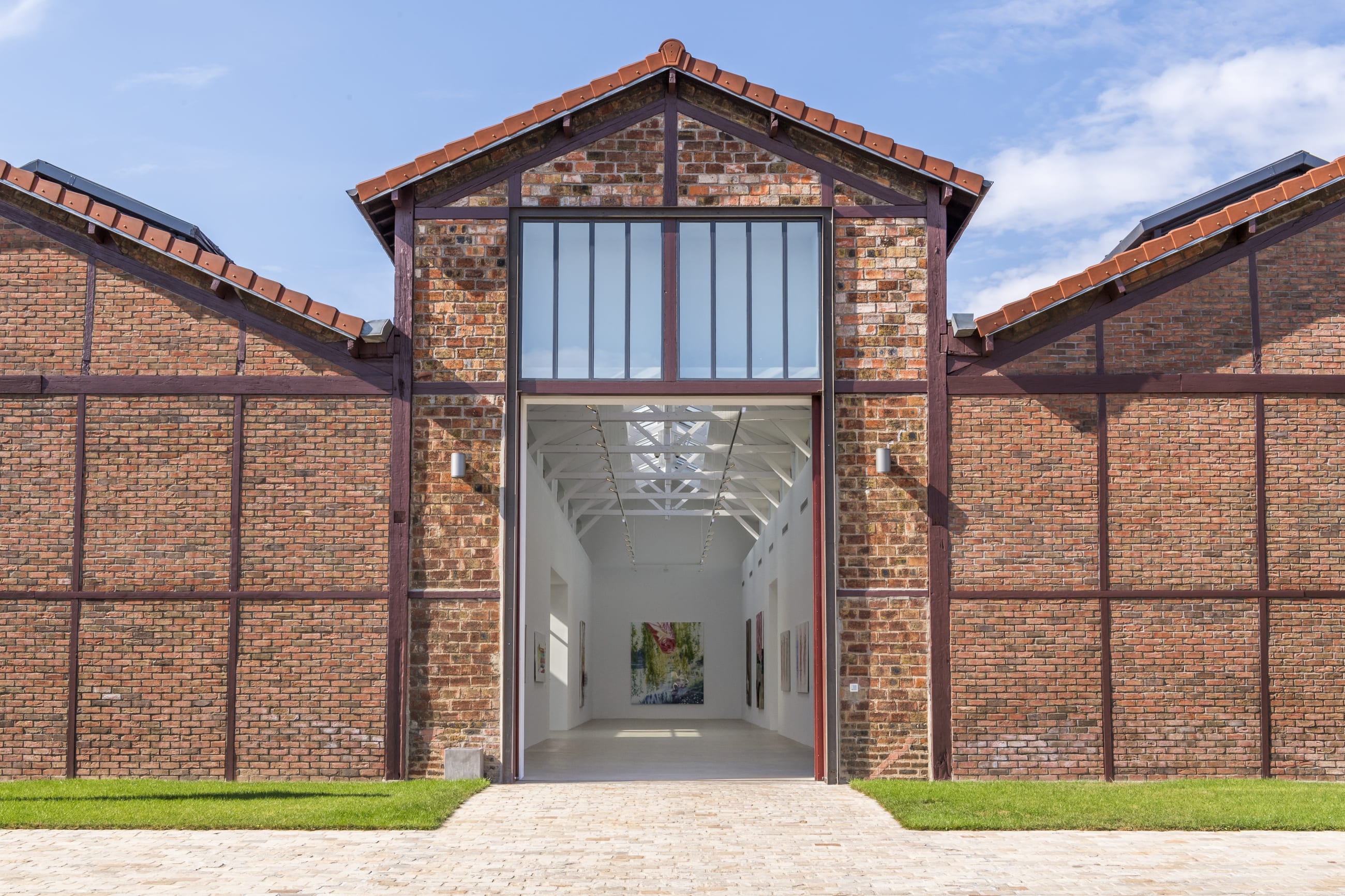

Overview
Paper is a delicate surface that also enables the artist to create very understated pieces. He works with a variety of materials like ink and wax, pastel and gouache or watercolor, which create unpredictable effects and a tension on the paper’s surface.
Galerie Thaddaeus Ropac is delighted to announce its first exhibition with Austrian artist Nick Oberthaler. This show will bring together a selection of the artist’s recent works in the Drawing Space.
Nick Oberthaler is a draftsman who uses intriguing techniques. Though he likes to refer to his works as ‘drawings’, he also works with paint and ink, which he further combines with pasted-on fragments. He remains partial to paper as his “canvas”, due to its fragile quality. The marks that he makes on it are unalterable. The paper is sometimes damaged, and he likes to treat it roughly.
Paper is a delicate surface that also enables the artist to create very understated pieces. He works with a variety of materials like ink and wax, pastel and gouache or watercolor, which create unpredictable effects and a tension on the paper’s surface.
In his compositions, Nick Oberthaler uses numerous media: photographs, photocopies of images found in books, magazines or on the internet… Untitled (vertical horizon/after Philip de Koninck) (2011) is a small drawing in ink and pastel. The materials are visibly superimposed one atop another; large brush strokes frame the center, which is occupied by a postcard glued on its flip side. One recognizes the famously nebulous skies, characteristic of landscapes by De Koninck, which the artist partially concealed using a thick black stripe. The spatial aspects of the drawings are constructed in relation to a perspective whose vanishing point, within this postcard, appears like a window on an off-center horizon.
Nick Oberthaler likes to combine his drawings. He assembles or juxtaposes them in the installations, which he considers to be veritable laboratories. Sometimes he puts up walls of plywood, as if he is trying to shift the walls of the atelier within the exhibition, in order to preserve what is intuitive and spontaneous. He likes to meddle with the fixed picture rails of the museum or gallery. All the way down to the measurements, he navigates between strict form and incomplete form.
The images that inspired him are sometimes pasted nearby, or pasted on the drawings themselves. Untitled (is painting a construction?)(2011) is a geometric assemblage of stretches of color, in nuances of gray, although the neat contours bring to mind the structure of an abstract geometric painting. The rigor of this construction seems deliberately disrupted by the
Paper is a delicate surface that also enables the artist to create very understated pieces. He works with a variety of materials like ink and wax, pastel and gouache or watercolor, which create unpredictable effects and a tension on the paper’s surface.
In his compositions, Nick Oberthaler uses numerous media: photographs, photocopies of images found in books, magazines or on the internet… Untitled (vertical horizon/after Philip de Koninck) (2011) is a small drawing in ink and pastel. The materials are visibly superimposed one atop another; large brush strokes frame the center, which is occupied by a postcard glued on its flip side. One recognizes the famously nebulous skies, characteristic of landscapes by De Koninck, which the artist partially concealed using a thick black stripe. The spatial aspects of the drawings are constructed in relation to a perspective whose vanishing point, within this postcard, appears like a window on an off-center horizon.
Nick Oberthaler likes to combine his drawings. He assembles or juxtaposes them in the installations, which he considers to be veritable laboratories. Sometimes he puts up walls of plywood, as if he is trying to shift the walls of the atelier within the exhibition, in order to preserve what is intuitive and spontaneous. He likes to meddle with the fixed picture rails of the museum or gallery. All the way down to the measurements, he navigates between strict form and incomplete form.
The images that inspired him are sometimes pasted nearby, or pasted on the drawings themselves. Untitled (is painting a construction?) (2011) is a geometric assemblage of stretches of color, in nuances of gray, although the neat contours bring to mind the structure of an abstract geometric painting. The rigor of this construction seems deliberately disrupted by the
hastily glued-on pictures. Nick Oberthaler leaves behind stains, mistakes; he adds pasted-on papers to this framework, which create a mise en abime of his geometric formulations.
The finishings are uneven: either very final or very sketchy. He wants to continually maintain the mystery of the associations that he chooses, and the uncertainty about what he truly wishes to reveal. He insists on the ambiguity of images, letting the viewer’s gaze wander and decide which point of reference to focus on within the œuvre.
The exhibition title, “Doubt and Grace”, refers to these two states that often affect the artist. Oberthaler takes a lot of time to combine his materials and his images: everything may change at the very last minute, and one never knows if a drawing is truly complete when it is exhibited.
The artist also presents wall-mounted sculptures in this exhibition. His drawings are juxtaposed with metallic structures shaped like crosses. This module plots a geometry from the wall that then extends the drawing's limits within the space. It is not simply a backdrop: the artist shapes our perception by directing our eye to a meeting point. It is a metaphor of the mirror, in which a favorite image is slipped into the corner. In these sculptures, we may also see an imaginary landscape, presented on the panes of a window whose contours have been erased: a nostalgic vision of a state we do not wish to forget.
Oberthaler likes to think of his work as something metaphysical; he explores the states of melancholy, nostalgia, and contemplation. He draws the way he would write poetry.
Nick Oberthaler was born in 1981 in Bad Ischl, Austria. He lives and works in Brussels where he is currently doing a residency at the WIELS Center for Contemporary Art. Oberthaler graduated from the Akademie der bildenden Künste in Vienna and the Ecole Supérieure des beaux-arts in Geneva.
He has participated in a number of group shows in Europe. Since 2008, he is co-editor of the monthly magazine Blackpages.
A book will be published on the occasion of this exhibition with essays by art critic Joanna Fiduccia and Gallien Déjean, independent art critic and curator.
